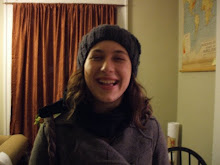On 20 July 1974, the Turkish Armed Forces launched an intervention of Cyprus on the pretext of a coup which had been staged by the Cypriot National Guard against president Makarios IIIGreece, but the intervention ended up with Turkey occupying a considerable area on the north part of it and establishing a government on it that only Turkey recognizes. The intervention came after more than a decade of sporadic inter-communal violence between the island's Greek Cypriots and Turkish Cypriots resulting from the constitutional breakdown of 1963. Turkey invoked its role as a guarantor under the 1960 Treaty of Guarantee in justification for it. Turkish forces invaded the island in two waves, occupying 37% of the island's territory in the north-east. The operation led to the widespread displacement of Cyprus' ethnic communities, dividing the island between a Turkish Cypriot north and Greek Cypriot south.
In the aftermath, Turkish Cypriots declared a separate political entity in the form of the Turkish Federative State of Cyprus and by 1983 made a unilateral declaration of independence as the Turkish Republic of Northern Cyprus, which was recognized only by Turkey. The United Nations continues to recognize the sovereignty of the Republic of Cyprus according to the terms of its independence in 1960. The conflict continues to overshadow Turkish relations with Greece and with the EU.
The Republic of Cyprus has sovereignty over the entire island of Cyprus and its surrounding waters except small portions that are allocated by treaty to the United Kingdom as sovereign military bases. The Republic of Cyprus is partitioned into two main parts, the area under the effective control of the Republic of Cyprus, comprising about 59% of the island's area and the Turkish Republic of Northern Cyprus, covering about 37% of the island's area.








